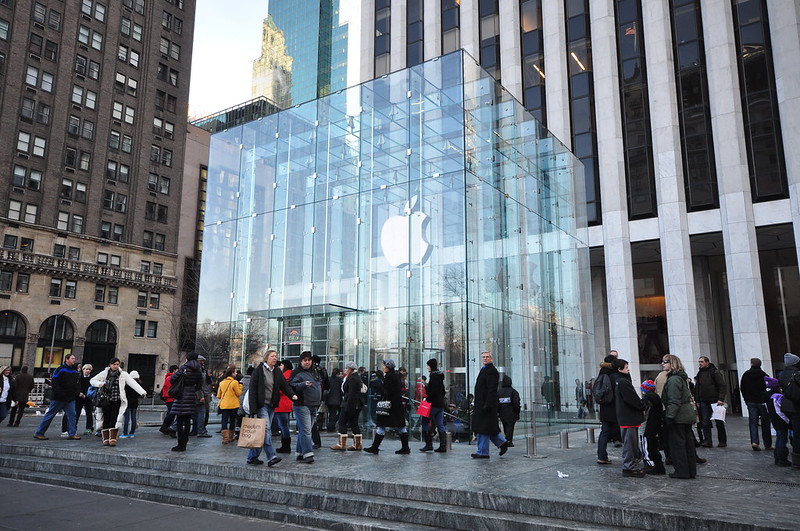The proposed class-action lawsuit suggests that Apple unnecessarily restricts what types of device information can be shared with third-party digital storage services, thereby depriving iPhone and iPad owners of any convenient alternative to the Apple iCloud.
A proposed class-action lawsuit filed in a San Francisco-based federal court claims that Apple wields an unlawful monopoly on digital storage services for its iPhone products.
According to The Hill, attorneys for the class allege that Apple imposes “surgical” restraints on consumers effectively preventing that from using any other back-up service except iCloud.
iCloud, the lawsuit says, is the only service authorized to host certain types of “restricted” data from Apple mobile phones, tablets, and computers.
“Apple […] arbitrarily requires that its mobile device holders use iCloud to back up certain file types—mainly, device settings as well as apps and apps data (“Restricted Files”),” the class action claims. “With respect to other file types—e.g., photos and videos (“Accessible Files”)—Apple mobile device holders can select from other cloud-based storage providers servicing the market, including Google Drive, Sync.com, pCloud, and others.”
By imposing such restraints on “restricted files,” attorneys say that Apple has “unlawfully ‘tied’” the use of its devices to the use of its iCloud service.

“Apple’s arbitrary prohibition on hosting Restricted Files fundamentally distorts the competitive landscape to privilege iCloud over all rivals,” the lawsuit alleges. “As a result of this restrain, would-be cloud competitors are unable to offer Apple’s device holders a full-service cloud-storage solution, or even a pale comparison.”
Since Apple can “[prevent] rival cloud platforms from offering a full-service cloud solution that can effective compete against iCloud,” the company has significant leeway in both limiting the free storage space to which consumers are entitled and charging inflated prices for additional cloud storage.
“Apple’s restrictions eliminate [the choice to use another service] and, in doing so, effectively compel Apple device holders to use iCloud for storage,” the complaint alleges. “Technically speaking, Apple imposes what economists refer to as a “requirements” tie. That is, if iPhone or iPad holders wish to use cloud storage for Restricted Files—and most do—iCloud is their only option for fulling that requirement.”
“And,” the lawsuit adds, “for anyone requiring more than 5GB of storage, which is to say most Apple customers, they must pay for it.”
The lawsuit further suggests that “there is no technological or security justification for Apple mandating the use of iCloud for Restricted Files. Apple draws this distinction only to curtail competition and advantage its iCloud product over rival cloud platforms.”
Overall, iCloud holds a roughly 70% market share in cloud storage for Apple users—large enough for Apple to increase subscription rates “undisciplined by competition.”
“Apple has marked up its iCloud prices to the point where the service is generating almost pure profit,” the lawsuit states. “Apple’s ability to sustain these prices is a testament to its monopoly power.”
Sources
Apple hit with class action lawsuit over iCloud’s 5GB limit and iPhone backup restrictions
Apple hit with consumer lawsuit claiming cloud storage monopoly
Apple’s rules around iCloud storage at center of lawsuit alleging antitrust law violations
Proposed class action lawsuit alleges Apple monopolizing cloud storage for its devices


Join the conversation!